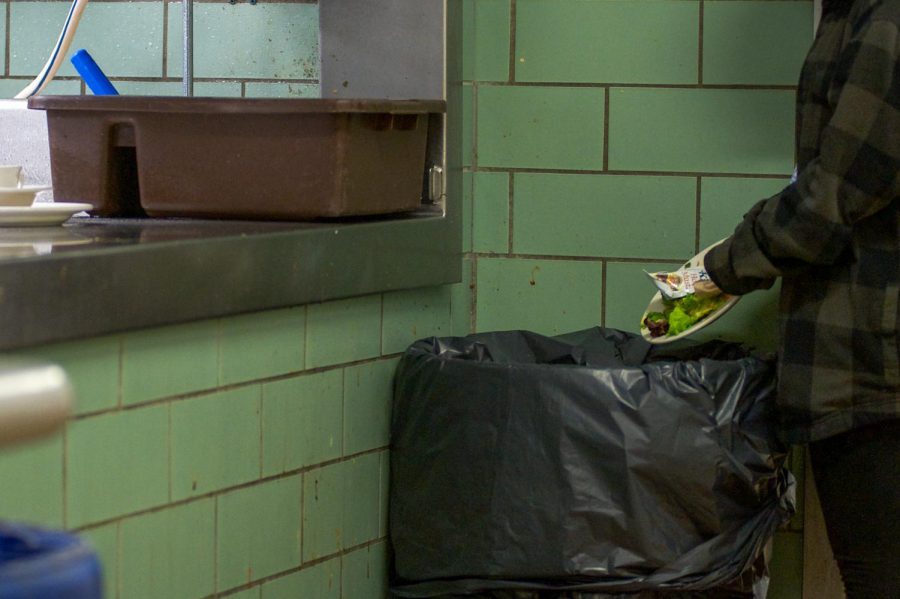Campus Dining Services Implements Temporary Food Waste Initiatives
AVI and OSCA pursue sustainability through food waste initiatives.
Throughout the spring semester, campus-wide initiatives have been implemented in order to reduce food waste. AVI Fresh, in collaboration with the Office of Environmental Sustainability, is piloting a compost service in Stevenson Dining Hall for breakfast, lunch, and dinner during the second week of Ecolympics — from April 17–23 — and in celebration of Earth Day.
Ecolympics is an annual two week community competition and event series aimed at reducing carbon emissions and raising environmental awareness. This year, individuals eating in dining halls can compost their uneaten food or food-contaminated paper products.
Food scraps that can be put in the compost bins include dairy, meat, and bones. Food contaminated paper products, such as napkins and wax paper, and anything with the Biodegradable Products Institute compostable label can also be placed in the bins. The finished compost is brought back to campus and used to enrich the soil through various soil blends and for special gardening projects.
“The Office of Environmental Sustainability staff/interns and members of the Resource Conservation Team are excited to work with AVI to fully staff waste stations in the dining room during Compost Week to educate students, faculty, staff, and visitors on what can be composted and what should go into the trash,” Oberlin College Sustainability Manager Heather Adelman wrote in an email to the Review. “The College is committed to carbon neutrality by 2025. Waste management is a component of this work. The Oberlin College Environmental Policy Implementation Plan, adopted by General Faculty in 2015, sets zero waste as a goal. OES is working on a number of programs to reduce waste generation on campus as well as many initiatives to divert the waste that is generated away from the landfill and instead to reuse programs, recycling programs, and composting programs.”
The Oberlin Student Cooperative Association has also implemented a program dedicated to reducing food waste, starting this semester. OSCA now works with Oberlin Community Services to donate uneaten prepared food. Though OSCA typically composts all of its food, this new approach will provide meals to community members.
OCS regularly supplies disposable foil trays to OSCA. All cooked food not on baking trays — primarily beans, lentils, and rice — goes in disposable containers and are sealed with a lid. At the end of the meal, all tins that were not served are labeled by OSCA and picked up by OCS.
Food Programs Coordinator at OCS Liv Hanson spoke to the Review about the partnership.
“OCS had a food rescue program that got started around 2017 or 2018,” Hanson said. “OSCA has recently hopped on to the program. Local restaurants and entities can donate any leftover food that would otherwise appear in the trash. We’ve been working on this for the past few years. It’s a really great way to connect entities that would otherwise have some waste and to connect food to folks in our community that are food insecure.”
OSCA Food Coordinator and College second-year Elijah Freiman spoke with the Review about the history and current state of this effort.
Past OSCA members have tried to carry out a food conservation program but have been unsuccessful. However, according to Freiman, there have been recent updates.
“We’ve been able to implement it with varying degrees of success,” Freiman said. “It’s been most successful in Pyle Co-op. In general we throw out more of our food than donate it. It’s important to understand food waste as natural and inevitable but it’s important to have a food waste plan. Composting is great but food donations are better. OSCA does a pretty good job of limiting excess food, but we could do a better job of where we send excess food.”







